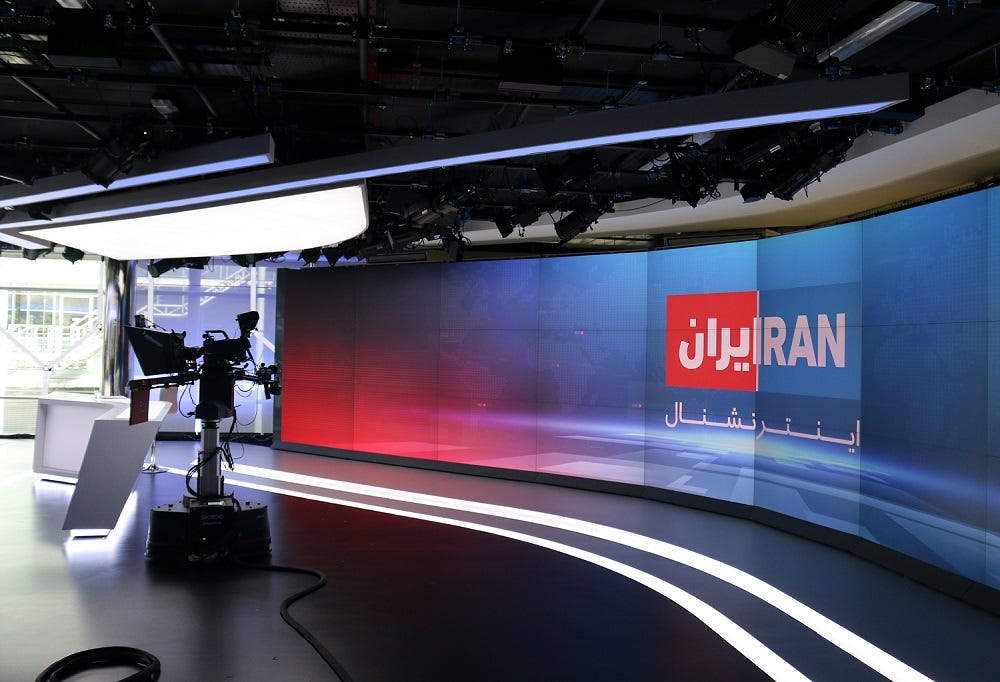Qatar Bans Saudi-Linked Iranian Opposition TV from World Cup
Doha and Tehran have a common interest in preventing Iran International from covering soccer protests.
Qatar has refused permission for Iran International’s journalists to cover the World Cup, the Saudi-linked channel claims.
The presence of Iran International touches two sensitive political issues: the ongoing uprising in Iran and the Saudi-Qatari soft power rivalry. It appears that authorities in Doha would like to keep both out of the soccer tournament.
Like the rest of the Iranian media sphere, the Iranian national soccer team has become politicized. Soccer players have shown their solidarity with the protesters by refusing to celebrate their victories, staying silent during the national anthem, and wearing black.
However, some opposition activists believe that the players’ support is not nearly enough, and are demanding a boycott of the team. A couple days ago, the soccer team met with President Ebrahim Raisi at the same time activists on the ground were calling for a general strike.
Other athletes have much more explicitly supported the uprising.
Retired soccer player Ali Karimi publicly turned down an invitation to attend the World Cup. He had been charged in absentia for his online support of the protests, and Iranian agents reportedly tried to kidnap him from the United Arab Emirates, where he lives.
During recent protests in Tehran, someone filmed a billboard of the national soccer team on fire, while invoking Karimi’s name. U.S.-funded Radio Farda shared the video, with the term “national team” in scare quotes.
Even before the current unrest, there has been a years-long campaign by hardline opposition activists to ban Iranian sports teams from international venues, as a way to delegitimize the Islamic Republic.
Fearing protests by Iranian fans in the audience, the Iranian government has asked Qatar to “prevent possible problems” at the World Cup, according to Iran International’s report.
Doha has its own reasons to agree to such a request. While Qatar is not exactly Iran’s ally, the two states share a distrust of Saudi Arabia. The Qatari-Saudi rivalry is especially potent in the field of media and soft power.
After the Arab Spring uprisings, Saudi Arabia and its close ally the United Arab Emirates backed status quo powers. Qatar aligned with Islamic populist movements. The two sides have poured vast sums of money into news outlets and other cultural institutions to spread their message.
Iran International is widely seen as an instrument of Saudi soft power, even by other critics of the Iranian government. The channel was founded by well-connected Saudi businessmen. It takes money from the Saudi royal court and has allowed a journalist from Saudi state-affiliated media to guide its coverage, according to an investigative report by The Guardian, which Iran International has denied.

The World Cup is an opportunity for Qatar to portray itself as a global cultural hub. Human rights scrutiny has undermined that goal. Qatar — just like Saudi Arabia and the United Arab Emirates — relies on a large class of non-citizen laborers. Journalists and activists have used the preparations for the World Cup as a way to draw attention to their plight, as well as other issues related to social freedoms and corruption.
Qatar may see Iranian protests as another touchy political issue that risks overshadowing the prestigious soccer tournament. If so, it will not want to give Saudi Arabia an opportunity to control the narrative. At least on this issue, Doha and Tehran have a common interest.



